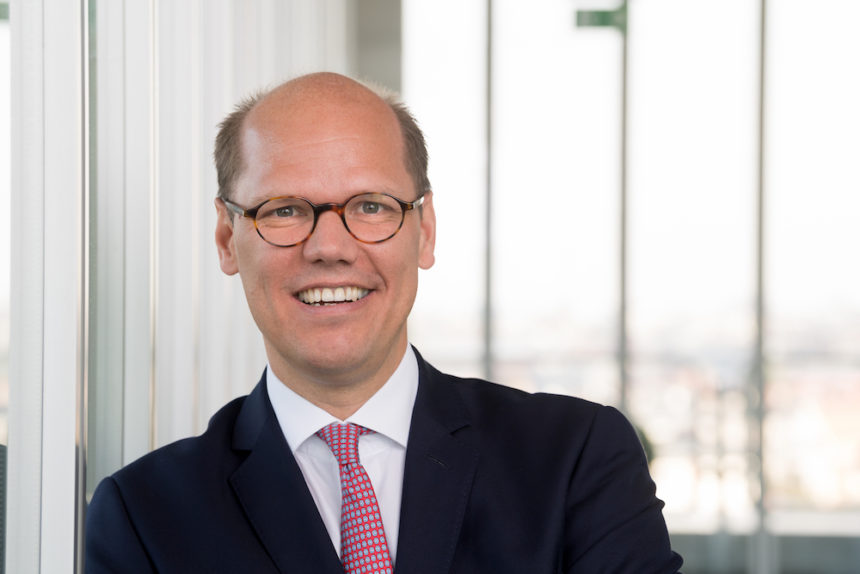After finishing up his education in the early aughts, Sebastian Guth went the entrepreneur route and founded allmaxx.de, a tech startup envisioned as an online shopping mall for students. There was money (courtesy of backing from one of Europe’s leading VC groups) and a product that, Guth recalls, “had the potential to be meaningful.” But within a few years, the company failed to scale as planned. It still exists today, but in a form that barely resembles Guth’s original vision.
Guth characterizes the experience as a great disappointment — and as perhaps the pivotal moment in his professional development.
“We fundamentally failed over the culture we created, or maybe didn’t create,” he explains. “In hindsight, we weren’t really one team. We were a bunch of individuals all chasing our own objectives.”
That lesson has informed Guth’s approach to internal culture ever since. Just 15 months after assuming leadership of Bayer’s Americas operations (“obviously our most important market,” he says off-handedly), Guth has affected a cultural transformation that has fundamentally changed the way Bayer engages with its internal and external constituencies.
By all accounts, it started at the top. At the company’s national business meeting in March, Guth shared a personal story that few of his colleagues knew.
His younger brother had been born with a severe disability, one which physicians believed would restrict him to a wheelchair for the entirety of his life. However, Guth’s parents didn’t accept the diagnosis and pushed for him to explore different avenues of treatment. Their diligence and stubbornness paid off: His brother no longer uses a wheelchair and is “perfectly healthy,” Guth says.
By sharing this story, Guth sought to impart both a lesson and a philosophy. He hoped to convey that “optimism is a choice we can make every day” and that marketers unable or unwilling to forge deeper emotional connections with audiences will ultimately fall behind the ones who are.
That same thinking goes for pharma leaders. Guth readily admits that, prior to the March meeting, he rarely shared much about his life outside the office.
“A few years ago, I’m not sure I would have spoken about that experience with my brother,” he admits. “When you start having those dialogues, you’re suddenly no longer grounded in corporate strategy statements. You’re grounded in shared personal experiences.”
The decision resonated with Guth’s colleagues. “He is a visible and active leader who creates commitment in his people by leading by example,” says Dr. Michael Devoy, chief medical officer of Bayer AG and head of medical affairs and pharmacovigilance for its pharmaceuticals division.
Guth’s push to reinvent Bayer’s culture comes at a time when the company has charted out an ambitious developmental course. The company hopes to retain its traditional strength in women’s health, radiology, hemophilia and MS while pushing deeper into cardiology and precision oncology.
Bayer hasn’t exactly been shy about exposing its strategy: Over the last year or so, it snapped up the part of cell therapy developer BlueRock Therapeutics it didn’t already own; invested in Khloris Biosciences, a maker of anti-cancer vaccines; and acquired rights to Vitrakvi, Loxo Oncology’s highly regarded targeted cancer drug.
“We don’t back away from spending real money,” Guth says. “We have a genuine belief across the organization that great things will happen at the intersection of technology and biology. That will take partnerships and investments, because we know we don’t necessarily have everything within our own company.”
However, Guth doesn’t sweat the cultural implications of any such additions, believing that the foundation has been laid for sustainable success. “The goal isn’t just to have me and my colleagues at Bayer talking about our culture, but others talking about the culture at Bayer and why it’s a company you’d want to be a part of,” he stresses. “What’s that expression — ‘Culture eats strategy for lunch’? We feel like we’re ahead of the game now.”
From the December 01, 2019 Issue of MM+M - Medical Marketing and Media







